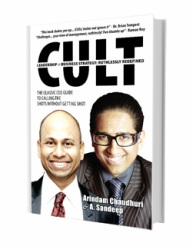So, that afternoon, did my brother really let my father down by taking a ride on a two-wheeler from our institute’s campus to the highway to have lunch? No. I believe every 20-year-old at times takes his own decision and thinks that this much seems quite fine a risk. We all have the right to go out on the road and come back alive. It’s India’s pathetic road safety that let him down. We are a country of road killers. The highest number of road deaths in the world happens in India. If it were America, chances are fifty times more that my brother would have been alive.
While with only a mere 12 million vehicles, we have about 114,000 deaths on Indian roads, with about 250 million plus cars in the USA, they have only 41,000 road accident fatalities per year. That is, in India for every 100 cars we have one road death; in USA, there’s one road death for every 5,000 cars! And how does this difference take place? Is it because there people don't drink? Well, the daily normal alcohol consumption per capita is far higher in the West, especially among the youth – which is involved in the maximum number of road accidents. Is it because people in the West don't drive fast? Well, the average speed limits in developed nations are far higher than those in India. And it is in developed nations that more youths have access to vehicles on the road and ergo tend to be more reckless; then how is it that the West manages to systematically bring their accident numbers down to such abysmal lows, while we aren't even bothered? Or is it that only the 26/11 deaths should be considered as deaths but thousands of more preventable deaths happening in every other family around us are not deaths but God’s sweet will? Can you fathom this, that as a nation, we lose $20 billion annually to road accidents, enough money to do away with 50% of our country's malnutrition problem? Read More....
An Initiative of IIPM, Malay Chaudhuri and Arindam Chaudhuri (Renowned Management Guru and Economist).
For More IIPM Info, Visit below mentioned IIPM articles
2012 : DNA National B-School Survey 2012
Ranked 1st in International Exposure (ahead of all the IIMs)
Ranked 6th Overall
Zee Business Best B-School Survey 2012
Prof. Arindam Chaudhuri’s Session at IMA Indore
IIPM IN FINANCIAL TIMES, UK. FEATURE OF THE WEEK
IIPM strong hold on Placement : 10000 Students Placed in last 5 year
IIPM’s Management Consulting Arm-Planman Consulting
Professor Arindam Chaudhuri – A Man For The Society….
IIPM: Indian Institute of Planning and Management
IIPM makes business education truly global
Management Guru Arindam Chaudhuri
Rajita Chaudhuri-The New Age Woman
IIPM B-School Facebook Page
IIPM Global Exposure
IIPM Best B School India
IIPM B-School Detail
IIPM Links
IIPM : The B-School with a Human Face

 RSS Feed
RSS Feed